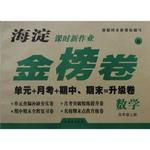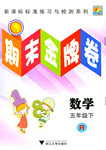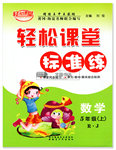题目内容
14.下面短文中有10处语言错误.请在有错误的地方增加、删除或修改某个单词.增加:在缺词处加一个漏字符号(∧),并在下面加上该加的词.
删除:把多余的词用斜线(\)划掉.
修改:在错的词下划一横线,并在该词下面写上修改后的词.
注意:1.每处错误及其修改均仅限一词;
2.只允许修改10处,多者(从第11处起)不计分.
A visitor visits an island where two tribes live.One tribe always tells the truth and an other always lies.The truth tellers live on the western side of the island,and those which lie live on the eastern side.The visitor wants determine whether the native beside he is a truth teller or not by ask only one question.He asks the native,"Go or ask the native in the distance which side of the island he lives to."When the messenger returned,he says,"He said he lives on the western side of the island."
Is the messenger a truth teller or not one?How can the visitor be surely?
分析 一名游客参观一座岛屿,岛上有两个部落,一个说真话,一个说假话.说真话的生活在岛的西边,说假话的住在东边.游客只问一个问题想确定他旁边的部落是不是说真话.
解答 A visitor visits an island where two tribes live.One tribe always tells the truth and an other
the
always lies.The truth tellers live on the western side of the island,and those which lie live on
who
the eastern side.The visitor wants/\determine whether the native beside he is a truth teller or not
加to him
by ask only one question.He asks the native,"Go or ask the native in the distance which side of
asking and
the island he lives to."When the messenger returned,he says,"He said he lives on the western
on returns
side of the island."Is the messenger a truth teller or not one?How can the visitor be surely?
去掉 sure
1.an改为the.短语搭配one…the other…一个,另一个.
2.which改为who.句中those指代的人,要用who来引导定语从句.
3.加to.动词短语want to do sth想要做某事.
4.he改为him.句中he作介词beside的宾语,要用宾格.
5.ask改为asking.句中ask作介词by的宾语,要用动名词形式.
6.or改为and.句意表达的是承接关系,不是选择.
7.to改为on.动词搭配live on the island生活在岛上.
8.returned改为returns.句意表达的是说话的客观事实,要用一般现在时态.
9.one去掉.搭配短语is…or not是否.
10.surely改为sure.句中sure作系动词的表语,要用形容词形式.
点评 短文改错是集语法知识与语言技能为一体的综合性试题,主要考查学生对词汇、语法和语篇三要素的把握能力.错误类型一般有:缺词、多词和错词.常见的错误有:1 词法错误,主要包括动词、名词、冠词、形容词、副词、代词和介词等词类误用、同义词混淆使用、固定搭配等方面.解答此类试题时,需要正确分析句子成分,熟练掌握各词类的用法以及掌握一些固定搭配等.2 常见句法错误.通常表现为简单句、复合句以及疑问句、祈使句、感叹句和强调句等错误.解答此类试题时,需要掌握各类句子的句式结构及意义用法.3 应在理解文章大意的前提下,进行作答.

 海淀课时新作业金榜卷系列答案
海淀课时新作业金榜卷系列答案 期末金牌卷系列答案
期末金牌卷系列答案 轻松课堂标准练系列答案
轻松课堂标准练系列答案| A. | where | B. | when | C. | that | D. | which |
| A. | Seeing | B. | Seen | C. | To see | D. | See |
| A. | that | B. | the one | C. | those | D. | ones |
| A. | lay;had been stolen | B. | lay;was stolen | ||
| C. | lying;had stolen | D. | lying;had been stolen |